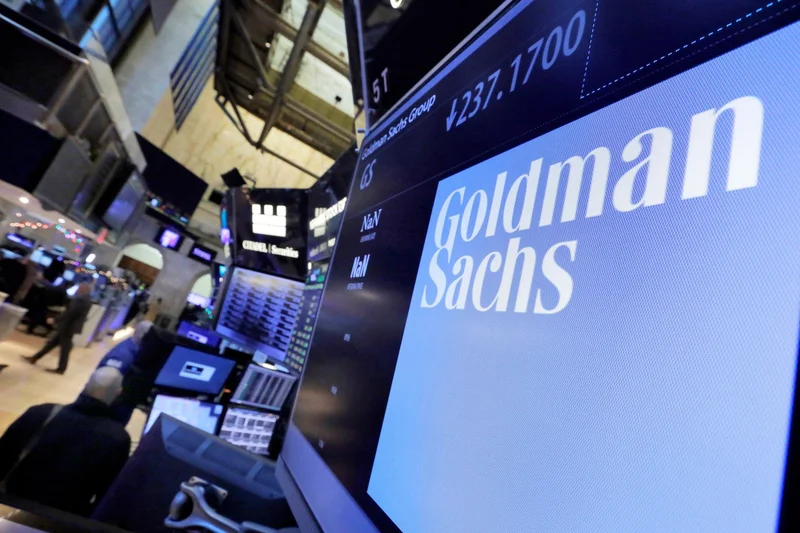Article Directory
Goldman Sachs' AI Memo Is Corporate Doublespeak for 'You're Fired'
So, Goldman Sachs sent out a memo. You can almost picture the scene: some poor mid-level VP, hunched over his desk, the blue light of his monitor reflecting off his glasses as he reads the email from CEO David Solomon. The subject line probably had some upbeat corporate nonsense like "OneGS 3.0 — Transforming the Operating System for the Firm." But the subtext was crystal clear: the robots are coming, and they’re coming for your job.
Let’s not mince words here. The memo is a masterclass in corporate gaslighting. It’s filled with beautiful, meaningless phrases like "re-wire the firm," "unlock significant productivity gains," and "expand our 'One Goldman Sachs' ethos." It's the kind of language designed by a committee of lawyers and PR flacks to sound inspiring while delivering a death sentence.
They call it a "limited reduction in roles." Give me a break. That’s like calling a guillotine a "streamlined human resources optimization tool." It’s an insult to the intelligence of every single person who works there. They’re not just “constraining headcount growth”; they are actively firing people and blaming it on a futuristic AI revolution that will, supposedly, make everything better for everyone.
For whom, exactly? The memo talks about enhancing the client experience and improving profitability. Offcourse it does. But what about the employee experience they so casually mention in their list of six goals? I guess "enriching the employee experience" now includes the thrilling new opportunity to pack up your desk. This whole thing is a joke. A bad one.
The Solomon Paradox
Here's the part that really gets me. This is the same David Solomon who, not too long ago, was out there at some conference predicting that Goldman would have more employees in the future, thanks to the magic of AI. He painted this rosy picture where generative AI would create such massive efficiency gains that the bank would just have to hire more people to handle all the new business.
So, which is it? Is AI the great job creator, a benevolent force lifting all boats? Or is it the corporate Grim Reaper, a convenient excuse to slash payroll and boost the `goldman sachs stock price` before the next earnings call? You can’t have it both ways.
This is a classic bait-and-switch. No, that’s not right—it's worse than that. It’s a calculated deception. They float the utopian vision of AI to the public and the press, getting all that sweet, innovative `goldman sachs news` coverage. Then, behind closed doors, they send out the internal memo that translates "efficiency" into pink slips. And they expect the people getting axed to be grateful for being part of this "multi-year effort."

What happens when these AI tools, like their internal "GS AI Assistant," get really good? Are we supposed to believe they’ll stop at just a "limited reduction"? This isn't the end of the cuts; it's the beta test.
This whole thing feels like one of those sci-fi movies where the corporation promises a better future through technology, but it’s really just about control and profit. It's like they're building the ship while simultaneously telling a chunk of the crew they won't be needed for the voyage. And honestly, maybe I'm the crazy one, but I don't see how you can claim to be building a stronger firm by telling your people they’re disposable.
The Same Old Story, Now with Buzzwords
At its core, this isn't even a story about AI. This is a story about greed. It's the oldest story on Wall Street. For decades, it was about leveraged buyouts and hostile takeovers. Then it was about algorithmic trading. Now, the buzzword is "Artificial Intelligence." The technology changes, but the goal remains the same: squeeze every last drop of profit out of the system, and if that means replacing a human with a line of code, so be it.
The memo talks about "sales enablement," "client onboarding," and "lending processes." These aren't just abstract workstreams; they're jobs held by thousands of people. People with mortgages, kids in college, and a career they thought was secure. Now, their entire profession is being "re-engineered" by an algorithm that doesn't need a salary, benefits, or a 401(k).
The analogy that keeps popping into my head is that of a factory owner in the 1920s installing a new automated assembly line. He gathers the workers and gives them a big speech about progress, efficiency, and the glorious future of the company. He tells them this new machine will make everyone’s life better. Then he fires half of them. This ain't different. It's just happening with spreadsheets instead of wrenches.
They say they "don't take these decisions lightly," but do they really mean it? Or is that just another line they have to include before getting to the part that really matters to them—the part about unlocking value for shareholders? Because when you read between the lines, that’s all this is really about.
